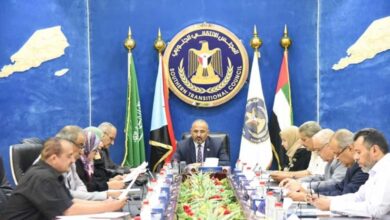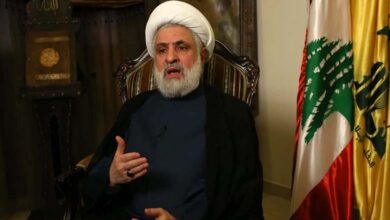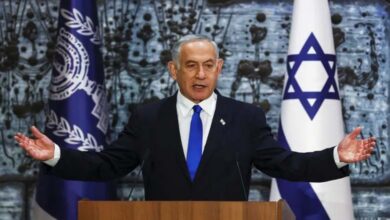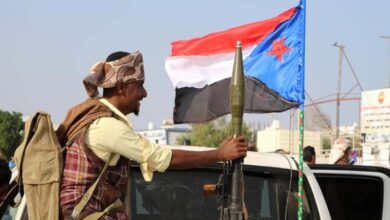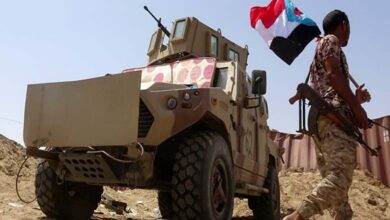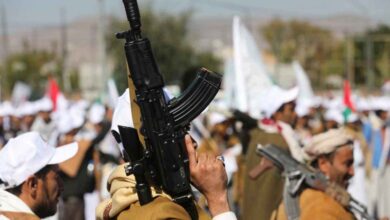Hamas Rejects Short Ceasefire
A Hamas leader states that Israel is presenting ideas in the air rather than a genuine offer to end the war.
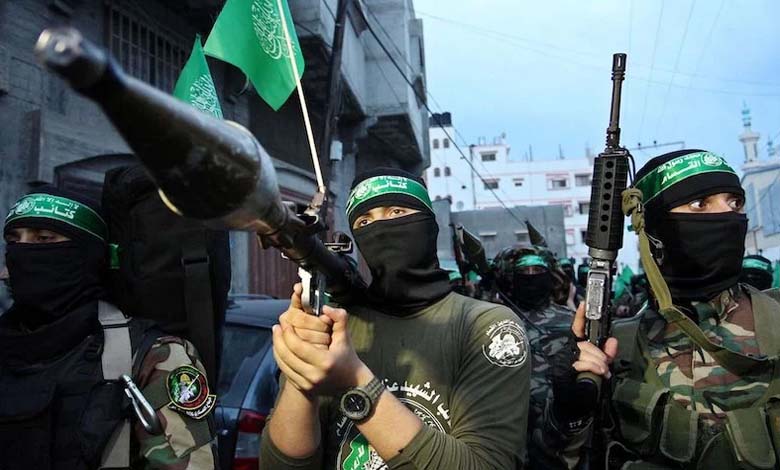
The Palestinian movement Hamas has rejected a temporary ceasefire in the Gaza Strip, justifying its decision by stating that the proposal does not include a permanent ceasefire, as confirmed by a senior source within the movement, which had previously expressed its readiness to consider any initiative aimed at halting the war.
-
How Will Hamas Continue to Fight in Gaza After Losing Its Leaders? Expert Answers
-
“Al-Mawasi Raids”: Israel Targets 3 Hamas Officials
The official said, “The proposals do not include a permanent cessation of hostilities, nor the withdrawal of the Israeli army from the Strip, nor the return of the displaced,” adding that they “do not address our people’s needs for security, stability, relief, and reconstruction, nor do they ensure the normal opening of crossings, especially the Rafah crossing.”
Egypt and Qatar, in coordination with the United States, are consulting with Hamas and Israel to resume indirect negotiations and bring the two parties closer together to reach a ceasefire agreement, according to Egyptian and Qatari sources.
-
After new demands from Hamas and Israel’s intransigence… have the Gaza truce negotiations stalled?
-
Are the Muslim Brotherhood Intervening in the Appointment of a New President for Hamas? What’s the Context?
According to the official, the Hamas delegation “reaffirmed that what the Palestinian people want is a complete, comprehensive, and permanent ceasefire, a total withdrawal from the Gaza Strip, the return of the displaced, and the lifting of the blockade.”
David Barnea, head of the Israeli foreign intelligence service “Mossad,” CIA Director William Burns, and Qatari Prime Minister Mohammed bin Abdulrahman Al Thani discussed in Doha on Sunday and Monday a proposal for a ceasefire “of less than a month,” according to a source close to the negotiations.
-
Israel Officially Announces the Killing of al-Qassam Leader, Hamas Denies
-
Agreement between Hamas and Fatah to form a temporary national reconciliation government
The agreement included an exchange of Israeli hostages for Palestinian prisoners in Israeli prisons and an increase in aid to Gaza.
Hamas leader Osama Hamdan stated in remarks to Al-Aqsa, a Hamas-affiliated channel, relayed by their Telegram platform today, that “any proposal presented to us that meets our people’s demands, ends their suffering, and stops the Israeli aggression permanently, not temporarily, we will accept without hesitation.”
-
Hamas Suspends Truce Negotiations After Assassination Attempt on Deif
-
Hamas is rebuilding its forces in Gaza by recruiting thousands of new fighters
He asserted that “the Israeli occupation is offering ideas in the air and not a genuine proposal, and it is not serious at all in the negotiations,” adding that “history shows that the Palestinian resistance has never been broken, and the occupation knows that it cannot break our people’s will.”
In a related context, leaders of major UN humanitarian agencies warned that the situation in northern Gaza is “horrific,” with 15 of these officials writing that “all residents of the area are at imminent risk of death due to disease, famine, and violence.”
-
Hamas awaits Netanyahu’s response amid Israeli protester pressures
-
Leads to Agreement Ending Gaza War… Hamas “Abandons” Condition Hindering Negotiations
They added that “the area has been under blockade for about a month and is deprived of essential aid and life-saving supplies while bombardments and other attacks continue. In just the past few days, hundreds of Palestinians have been killed, most of them women and children, and thousands have been forcibly displaced again.”
They also urged all warring parties in the besieged Palestinian territory to protect civilians and called on Israel to “stop its attack on Gaza and on humanitarian workers trying to provide assistance.”
-
“Loophole” in Gaza ceasefire negotiations… Hamas condition clashes with Israeli wall
-
New York Times reveals secrets of new Hamas cells in the West Bank
They emphasized that “humanitarian aid does not keep pace with the scale of needs due to access restrictions. Essential life-saving goods are unavailable. Humanitarian workers are not safe to do their jobs, and Israeli forces and insecurity prevent them from reaching those in need.”
The heads of major UN humanitarian agencies added, “Humanitarian relief must be facilitated, and we urge all parties to provide unhindered access to those affected,” affirming that “hospitals must not become battlegrounds.”
-
Hamas has lost half of its fighters in the Gaza war
-
Iran and Hamas Tried to Build a Military Organization in Jordan… Latest Developments in the Muslim Brotherhood Cell Case
The statement was signed by heads of UN agencies responsible for humanitarian affairs, health, food, rights, migration, refugees, development, children, women, and others.
UN officials stated that “the entire region is on the brink of disaster. An immediate cessation of hostilities and a sustainable and unconditional ceasefire are long overdue.”
-
Stubbornness from Hamas and Israeli conditions are dimming hopes for a ceasefire
-
Israel Controls Rafah Crossing to Pressure Hamas
In a field development, the Israeli army stated on Friday that it had killed Hamas leader Izz al-Din Kassab during an airstrike in Khan Younis in the Gaza Strip.
The army described him as one of the last prominent Hamas leaders responsible for coordinating with other groups in the Strip.
-
Hamas Receives Israel’s Latest Ceasefire Proposal Before Attack on Rafah
-
US and UK sanctions target a network financing Hamas
The Palestinian movement mourned Kassab in a statement, confirming that he was killed alongside another member named Ayman Ayesh during an Israeli strike on the vehicle they were in, while Hamas sources indicated that Kassab was responsible for a local group in Gaza but was not a member of the movement’s political bureau.




